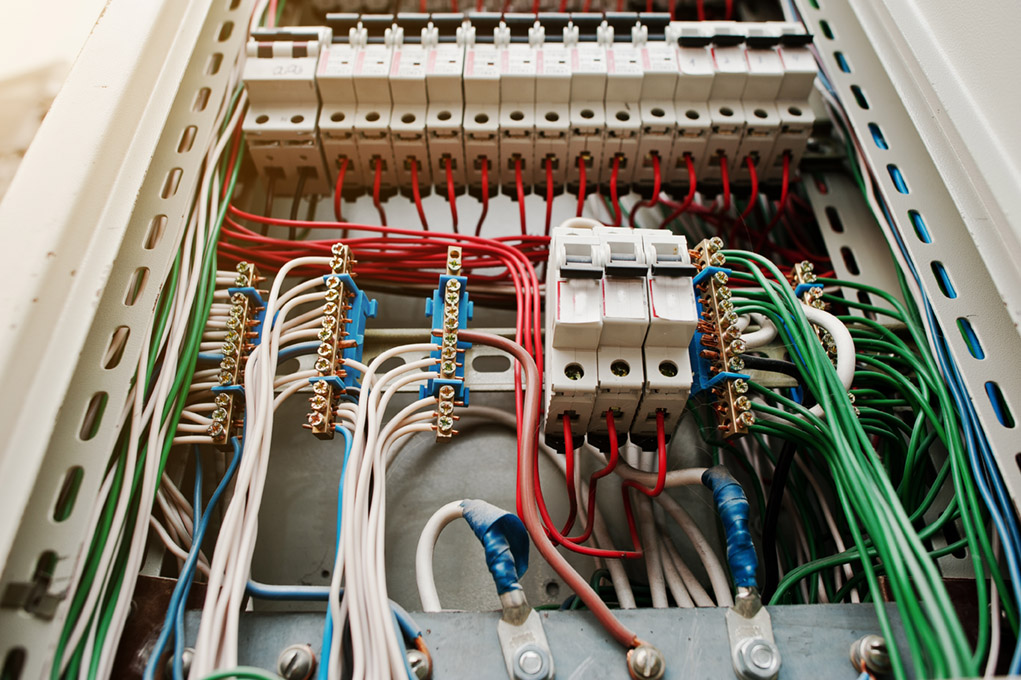At Swiftec Electric, the safety and well-being of our Rapid City neighbors is our top priority. This extends to the most important utility in your home: your electrical system. Whether you’re a homeowner looking for peace of mind, a prospective buyer doing your due diligence, or even a seller preparing your home for the market, ensuring your electrical panel and wiring are up to code is a crucial step that should not be taken lightly. The Black Hills area has its fair share of older homes that have older wiring materials that should be upgraded to modern standards. Panel breakers can fail over time, even in the newest of homes, so regular inspections should occur, especially if there have been any renovations. No matter your home’s electrical situation, it is important to look at the benefits of a healthy electrical system and the potential dangers if you have older and less reliable electrical wiring or panels.
Safety First: Why Up-to-Code Electrical Systems Matter
Electrical systems are the backbone of our modern lives, powering everything from lights and appliances to entertainment systems and security features. However, outdated or faulty wiring can pose serious safety hazards, including:
- Electrical fires: Faulty wiring is a leading cause of house fires. Up-to-code systems use modern materials and safety features that can prevent these devastating events.

- Electrical shocks: Outdated outlets and improperly grounded systems can increase the risk of shocks, which can be serious or even fatal.
- Circuit overload: Older homes may not have the capacity to handle the increased electrical demands of modern appliances. This can lead to overloaded circuits, tripped breakers, and potential damage to your electrical system and electronics.
The Differences between Old and Modern Electrical Systems
Electrical Wiring
Modern electrical wiring offers significant advantages over older wiring systems in terms of safety, capacity, and functionality. Here’s a breakdown of the key differences:
Materials:
- Modern: Uses primarily copper wires with flame-retardant plastic insulation (NM-B cable or Romex). Copper is a superior conductor with better heat resistance compared to aluminum.
- Older: May include knob-and-tube (pre-1940s) with exposed wires or cloth-covered wires (used until the 1960s). The insulation on these wires can degrade over time, becoming brittle and posing a fire hazard. Aluminum wiring (1960s-1970s) is another potential concern, as it can loosen over time and overheat, creating fire risks.
Grounding:
- Modern: Features a three-prong grounded system for added safety. This extra wire provides a path for stray current to flow in case of a fault, reducing the risk of shock.
- Older: May not have a grounding wire, especially in knob-and-tube or some cloth-covered systems. This lack of grounding can be a safety hazard with modern appliances.

Capacity:
- Modern: Designed to handle the increased electrical demands of modern homes. Modern appliances and electronics require more power than older ones, and wiring needs to be able to accommodate this safely.
- Older: May not be able to handle the current draw of today’s appliances. This can lead to overloaded circuits, tripped breakers, and potential damage to your electrical system and electronics.
Safety Features:
- Modern: May incorporate additional safety features like GFCI (ground fault circuit interrupter) and AFCI (arc fault circuit interrupter) outlets. These outlets can detect imbalances in current flow or potential arcing faults and shut off power to prevent electrical shocks and fires.
- Older: Typically lack these advanced safety features.
Electrical Panels & Breakers
Modern electrical wiring offers significant advantages over older wiring systems in terms of safety, capacity, and functionality. Here’s a breakdown of the key differences:
Electrical Panels:
- Modern: Constructed from fire-resistant materials and designed with clear labeling for each circuit. They typically have a main breaker that controls the entire electrical system and individual breakers for specific circuits.
- Older: May be made of metal or less fire-resistant materials. Labeling might be absent or unclear. Fuse boxes, common before the 1960s, use fuses instead of breakers. Fuses need to be replaced when they blow, while breakers can be reset.

Breakers:
- Modern: Circuit breakers are designed to trip automatically in case of overload or short circuit, preventing damage to wiring and appliances. They come in various amperage ratings to match the specific needs of each circuit.
- Older: Fuses, used in older panels, offer a less sophisticated overload protection. A blown fuse needs to be replaced with the correct size, and there’s a risk of using an improper fuse size which could lead to overheating. Additionally, some older breaker designs, like Federal Pacific Electric (FPE) or Zinsco breakers, have known safety hazards and should be replaced.
Additional Features:
- Modern: May include features like surge protection to safeguard electronics from voltage spikes and additional breaker space for future electrical needs.
- Older: Limited functionality. Surge protection and additional breaker space are typically absent.
Benefits for Everyone: Buyers, Sellers, and Homeowners
Investing in an up-to-code electrical system offers advantages for everyone involved in a home’s lifecycle:
- Prospective Buyers: Peace of mind knowing you’re buying a safe and reliable home. Up-to-date electrical systems can also be a selling point during negotiations.
- Homeowners: The comfort of knowing your family is protected from electrical hazards. Additionally, a properly functioning system can improve efficiency and reduce energy costs.
- Sellers: Increased marketability and potentially higher offers. Homes with certified electrical systems are more attractive to buyers.
Swiftec Electric - Your Partner in Electrical Safety
At Swiftec Electric, our licensed electricians are experts in electrical code compliance and safety. We offer a comprehensive range of services to ensure your home’s electrical system is up-to-date, including:
- Electrical panel inspections and upgrades: We can assess your current panel and recommend the best course of action, whether it’s a simple repair or a full upgrade to meet current code requirements.
- Wiring inspections and repairs: Our team can identify any outdated or faulty wiring in your home and make the necessary repairs to ensure safety.
- Ground fault circuit interrupter (GFCI) and arc fault circuit interrupter (AFCI) outlet installation: These advanced outlets can help prevent electrical shocks and fires.

Don’t wait until a problem arises. Contact Swiftec Electric today for a free electrical safety consultation and quote. Let’s work together to keep your Rapid City home safe and powered for the future!